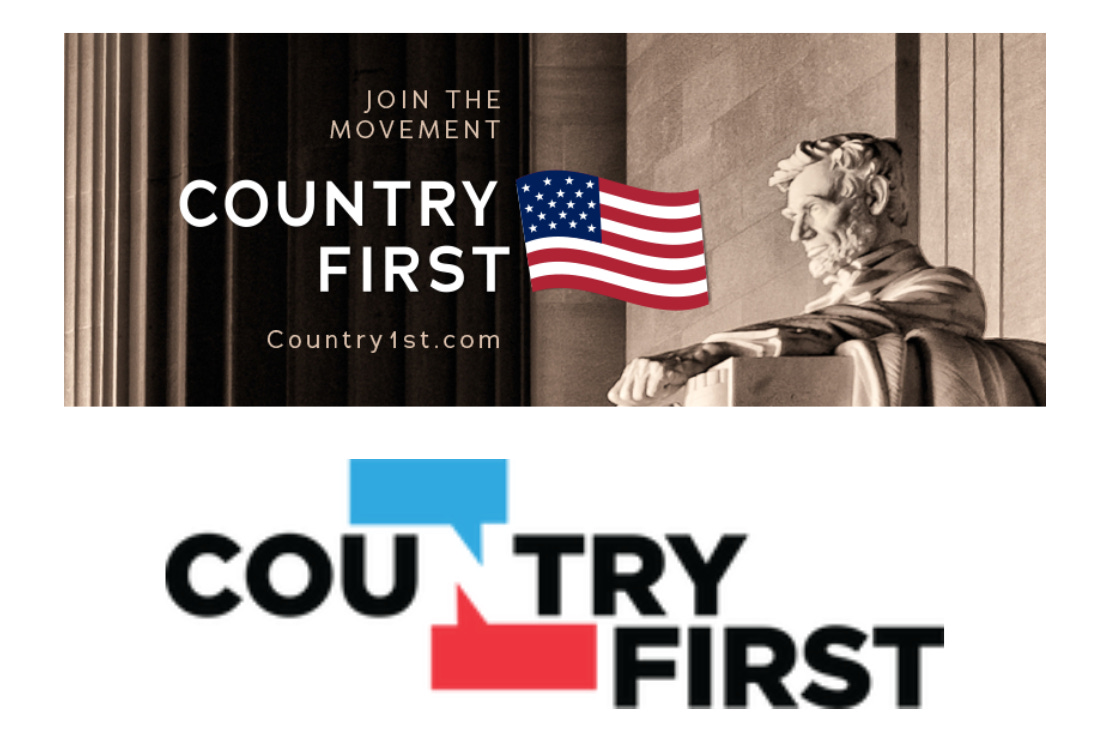How moderate candidates are marketing themselves
Plus: How Big Data targets you with political ads
Hello, in this issue we’ll look at…
How moderate candidates are marketing themselves
How Big Data targets you with political ads
Christina Aguilera just updated “Beautiful” for the social media age
Was this email forwarded to you? Subscribe to see the art, design, marketing, and visual trends defining the look of politics today:
How moderate candidates are marketing themselves

For voters turned off by extremism, centrists are marketing themselves as an alternative.
Many moderate candidates are “trying to play to the middle” with red, white, and blue color palettes and inoffensive design, said Shannon Zenner, an assistant professor of communication design at Elon University.
“The language of the moderates is to not be offensive to either side. So it’s to not have too much red or too much blue,” she said. “You don’t want to be too patriotic. How do you do that? You keep it really non-partisan, watered down.”
Senate candidates like Utah independent Evan McMullin and Sen. Lisa Murkowski (R-Alaska), the only impeachment Republican in the Senate up for reelection this year, both included stars in their logos. Some play up state over country with state map outlines, or in the case of Western candidates McMullin and Colorado Republican Joe O’Dea, they use mountains. In O’Dea’s mountain logo, the C in the Colorado state flag is turned on its side to look like a sun.
Rep. Tim Ryan (D-Ohio), a handsome man with two first names from America, The State who’s running for homecoming king/U.S. Senate, kept his visual brand traditional. “I think there’s a kind of this lack of over-design that’s happening,” Zenner said of Ryan’s basic branding. “Simplicity, I think, is in their design aesthetic.”
In his ads, Ryan speaks to voters who might not agree with him on every issue, or who aren’t enamored with the national Democratic brand.
In one ad filmed with his wife, Ryan says, “Some people think that they have to agree with their politicians 100% of the time, and I ask these people, are any of you married?” In another titled “Here They Come,” he plays quarterback, wearing an American flag tee while lobbing footballs at TVs that show attack ads and his Republican opponent J.D. Vance. When he throws a football at a TV showing the words “Defund the Police,” he says, “Here come the culture wars. I’m not that guy.”
The football ad is a moderate’s spin on the Republican trope of shooting guns to show toughness. In other earlier examples, Ryan put out an ad playing darts and Murkowski released one shooting a bow and arrow. The message: centrists are no soy boys, but they’re also not here to blow stuff up.
Country First is a federal political action committee started by Rep. Adam Kinzinger (R-Ill.), one of two Republicans on the House select committee investigating the Jan. 6, 2021 attack on the U.S. Capitol. Kinzinger’s PAC launched with a basic sans-serif wordmark and a forgettable flag logo.
Then in June, the PAC unveiled a clever redesigned logo that used two conversation boxes in red and blue. Together, they make the N in “country” out of negative space and communicate the group’s focus on cross-party conversation and areas of common interest. “If you’re willing to tell people the truth and not peddle in fear and conspiracy, you’re a Country First candidate,” Kinzinger told me last year after launching the group.
Country First has endorsed both Democratic and Republican candidates who have either opposed former President Donald Trump’s efforts to overturn the 2020 election — like Georgia’s Republican Secretary of State Brad Raffensperger — or are challenging election deniers— like Arizona Secretary of State and Democratic gubernatorial candidate Katie Hobbs. The group also endorsed independents McMullin and Clint Smith, a U.S. House candidate running in a conservative district in Arizona.

Moderate candidates are making overtures to voters outside their party through merchandise. Sen. Mark Kelly (D-Ariz.), the former NASA astronaut who’s won endorsements from Republicans including Mesa Mayor John Giles and former U.S. Attorney under George W. Bush Paul Charlton, put out space-themed “Republicans for Mark Kelly” stickers.
In Colorado, O’Dea has put the former battleground state back into play for Republicans even as he stands against the leader of his party. The Denver construction company owner called Jan. 6 “a black eye on the country” and promised to actively campaign against Trump if he runs in 2024. It cost O’Dea Trump’s endorsement, but his “Independents for Joe” yard signs and “Buck the Parties” stickers suggest he doesn’t care.
Country First boasts an online shop with multiple themed collections, including “Cancel Conspiracies” and “Politically Homeless.” Its yard signs have phrases like “Defeat the Extremes” and “Country Over Party.”
Self-described moderates make up a narrow 37% plurality of U.S. voters, Gallup found earlier this year, which would suggest candidates running to the middle of their parties are well positioned for Election Day. But these are moderates running in immoderate times, to borrow a phrase from the Bulwark’s Jim Swift, and it’s difficult to even define centrism in an era of shifting party orthodoxies (Liz Cheney, welcome to The Resistance).
In an earlier era of Rockefeller Republicans and blue dog Democrats, being moderate meant overlap between the least ideologically extreme members of the major parties. Following Trump’s failed attempt to overturn an election, though, a new moderate coalition has coalesced. It spans from center-right to left, and it believes in standing up against what Cheney called “a domestic threat we have never faced before.” To win as a moderate requires attracting voters across party lines, and candidates are marketing themselves accordingly.
How Big Data targets you with political ads
How you feel about movie theaters, public transit, and UFOs says something about how you might vote.
The New York Times is out with a look at the Big Data behind targeted political ads. Voter database companies build profiling systems based on publicly available information like party registration; commercially available data like net worth, education level, and gun ownership; and even information from loyalty-card records.
These companies can then determine characteristics that align with political stances and find “look-alike” voters to target with the most effective messages.
In Arizona during the 2020 election, the company PredictWise located more than 350,000 “Covid-concerned” Republicans for Sen. Mark Kelly (D-Ariz.) based on cellphone data that showed whether or not they left home a lot during the early months of the pandemic. The firm said it located more than 40,000 persuadable stay-at-home Republicans for Kelly’s campaign, according to the Times.
The story included links to information about voter models published by two companies. Voter models from HaystaqDNA, a firm that worked on former President Barack Obama’s 2008 campaign, included scores on 120 issues, including whether someone was a movie theater goer or avoider, if they support or oppose public transit, and whether or not they trust the government about UFOs. There were other scores for abortion, the COVID vaccine, QAnon, same-sex marriage, Rep. Alexandria Ocasio-Cortez (D-N.Y.), and whether they think Trump should run again in 2024.
A cached webpage showing models from i360, a conservative firm, said it scored based on attitudes on issues including gun control, the minimum wage, Affordable Care Act, school choice, capitalism, and climate change.
These models are not only being used in statewide races, but in races for U.S. House, state Senate, and local ballot measures, marketing executive Paul Westcott said.
Christina Aguilera just updated “Beautiful” for the social media age
To mark 20 years of Stripped, Christina Aguilera put a new music video for her self-acceptance anthem “Beautiful,” updated to reflect the role social media plays in body image.









